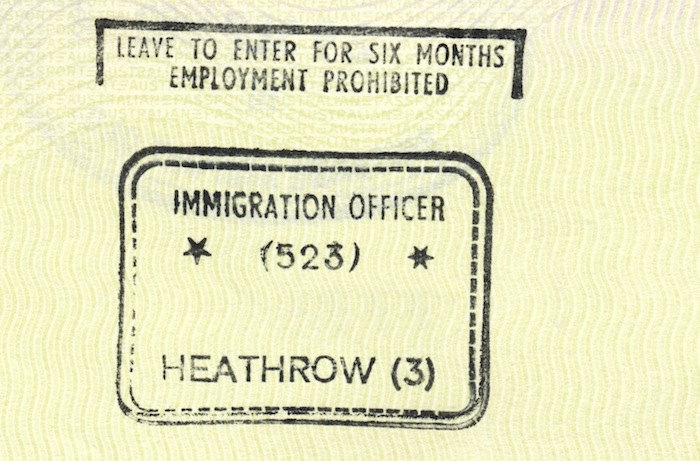As the dust settles in the wake of the Eastleigh by-election, the mainstream political parties, panicked by the apparent ascent of UKIP, have been engaged in a race to the bottom with Labour, the Liberal Democrats and the Conservative Party all seeking to present themselves as ‘tough’ on immigration, writes Dave Stamp.
- Dave Stamp is project manager at ASIRT, the Asylum Support and Immigration and Resource Team
The noise around the migration issue has reached a crescendo this week, with the Prime Minister’s declared intent to put an end to the ‘something for nothing’ culture, as a consequence of which migrants can apparently waltz into ‘soft-touch’ Britain to be garlanded with social housing and welfare benefits.
Anyone with even the faintest experience of the reality of the situation would know that life in the UK for people subject to immigration control is very far from the fantasy picture painted by Cameron. Indeed, there are particular concerns around the welfare of the children of parents subject to immigration control, who have been described as consigned to a ‘third class childhood’.
For many such children, whose parents have no recourse to public funds and are prohibited from working for a living, the only available means of subsistence is through section 17, Children Act support. This puts local authorities under a duty to safeguard and promote the welfare of children within their area who are in need, providing accommodation and subsistence support ‘in exceptional circumstances’ when such provision is not otherwise available.
Case law – such as the Clue Judgement [2008] and R(VC) v Newcastle City Council [2011] – has unequivocally declared that this duty is engaged in relation to the families of visa over-stayers and refused asylum seekers with pending applications for leave to remain under the consideration of the UK Border Agency. Indeed, the Newcastle judgement explicitly stated that the UKBA’s section 4 support provision- £35 per person in cashless support- was entirely inadequate to meet children’s needs, and should not be used as a substitute for section 17 support. From which one might conclude that the level of support provided to families under section 17 would be at least to the value of that offered by the UKBA.
And one would be wrong. Significant numbers of social workers and their managers themselves appear to have little idea of either their duties or powers under this legislation- with one assistant director of children’s services recently informing my agency that any support his team might be able to provide to an otherwise entirely destitute family would be ‘limited’ since Section 17 ‘is not designed to be a means of providing full financial support for whole families’, while being unable to suggest any alternative support provision such families might reasonably access.
One consequence of this is that there is little or no consistency of approach with regard to the support actually given- so that a family of three in one local authority may find themselves in receipt of subsistence payments of £70 per week, while another family of the same size in a neighbouring authority may receive less than half that amount. Both sums are, of course, significantly less than similarly sized families might expect to receive on Income Support or Tax Credits- the minimum level at which it is generally expected that one might reasonably be expected to live in the UK.
Setting aside the question of why anyone might think it appropriate to adopt a ‘tough’ posture in relation to meeting the essential welfare needs of children, one cannot help but wonder what the likes of Cameron might actually be seeking to gain by demanding ever more punitive action against such families. Realistically, the majority of these families are here to stay. The children are either already British citizens, in the case of ‘Zambrano’ families, or else have a strong legal claim for citizenship, in the case of families seeking regularisation under EM and Others (Zimbabwe), which recognises the status rights of children who have been present in the UK for 7 years.
Bluntly, what is to be gained from consigning actual or potential British citizens to years of impoverishment, marginalisation and social exclusion, other than the creation of a disenfranchised underclass?
In any case, if the situation for such families did not already provide quite enough evidence of our legislators’ unbridled machismo, the outlook is set to become yet bleaker on April 1st with the advent of the Legal Aid, Sentencing and Punishment of Offenders Act.
Some 96% of all immigration representation will then be removed from the scope of legal aid. At a stroke, this will make it little short of impossible for vulnerable families unable to access representation from an OISC regulated not-for-profit agency like ASIRT to regularise their status, unless they either raise the money to pay for private practitioners’ legal fees by working illegally or, as we have learnt to be the case with several single mothers with whom we have worked, prostituting themselves.
Again, one cannot help but wonder quite how effectively criminalising these families by driving them ever further into the illegal economy could possibly be to anyone’s long-term advantage, irrespective of how ‘tough’ our politicians might short-sightedly think such measures make them look.








